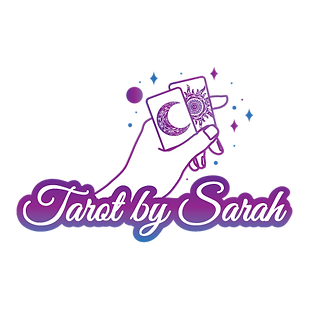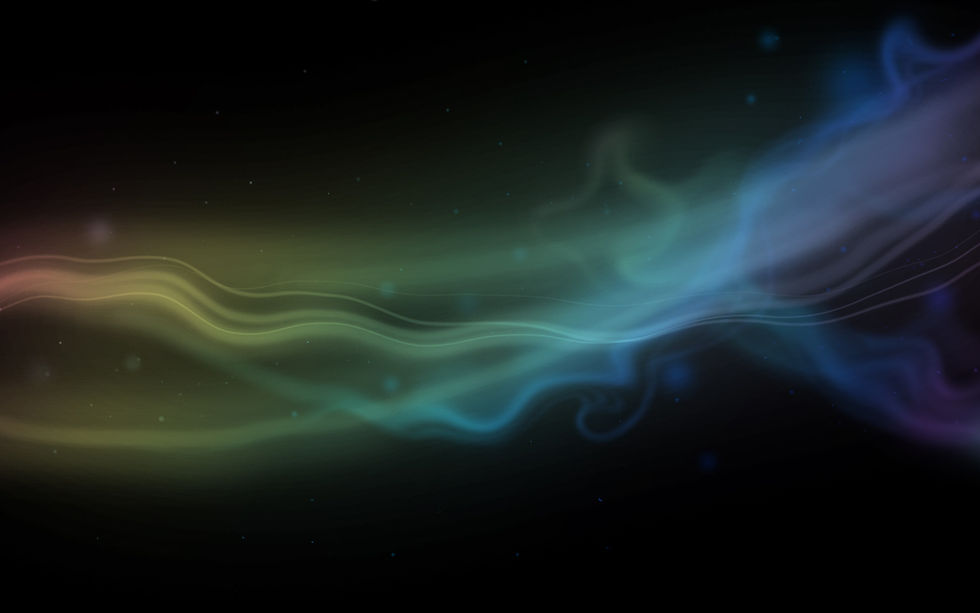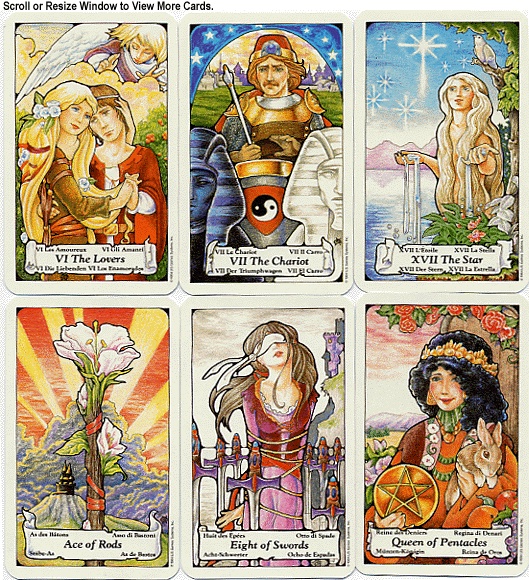- spiralspiritofferi
- Aug 5, 2024
- 5 min read
Updated: Aug 6, 2024

When I picked up my first deck at age 15, the Hanson Roberts Tarot, a vibrant folk tale deck, I felt a rebellious thrill. I was no stranger to its occult reputation and enticing cloak of mystique. It felt titillating to open it until I realized what “learning Tarot” entailed: memorizing the meanings, symbols, archetypes, and traditions of 78 different cards. That felt daunting! Then, I opened a paper cheat sheet with my first Celtic Cross spread on it, and my head swam at the possibilities that each of the 78 cards could be read differently, given their placement in the spread. That is a whopping 780 possible interpretations. So overwhelming!
Hanson-Roberts Tarot Example Cards
As I slowly constructed a relationship between my cards and my life, days became months and then years. From my experience of learning to read Tarot, I wanted to craft a course for those who may feel similarly thrown into the deep end when approaching their card reading journey. I wanted to assuage the overwhelm of learning Tarot, so I created a two hour intro course.
Tarot versus Oracle Cards
Tarot and Oracle are similar in many ways. They use symbols, colours, stories, archetypes, and life experiences to help guide our path. They offer a wide variety of cards that represent life's highlights and lowlights. Both can be used for daily insight or for more extended readings, including many placements in a spread (e.g., your present, your challenges, your relationships, etc.)
Where Tarot differs, is in its structure. It has two main components: the Major and the Minor Arcana. It won’t be called a Tarot without these two parts. Arcana means “secrets or mysteries.” So, the “Major Mysteries” are 22 cards that encompass more significant life lessons and shifts, whereas the “Minor Mysteries” of life are 56 cards that encompass our day-to-day experiences.
The Major Arcana always starts with the Fool (the seeker of a new path) and ends with the World (wisdom at the end of the journey.) The Minor Arcana resembles a deck of playing cards with suits and numbers or court cards like the Ten of Hearts/Cups or the Ace of Diamonds/Pentacles. They are affiliated with astrology because each suit represents the four significant elements of air, water, fire, and earth. So those with some astrology interest or background can find Tarot quite approachable, and those wanting to learn Tarot can also get educated in astrology. A total win/win.
From the Light Seer's Tarot
Oracle cards need not follow any structure, so their author and illustrator create the cards and their sequence at their whim. Due to their lack of consistent structure across all Oracles, it is not easy to master many Oracle decks like it is with Tarot. You will likely work with one Oracle deck, learn its meanings only, and find that you go back to being a “newbie” with each new Oracle you pick up.
I call myself a Tarot purist. I love that once you know its fundamentals, it’s transferrable to all Tarot decks. You may connect with an image of a Major Arcana card, like the Magician card in a specific deck more than in another. However, you can describe the original card to your client to help add another layer to the current card. They are both Magician cards, after all. (i.e., “In the Hanson Roberts Tarot, the Magician is seen blending all the elements using his intuition, so this card calls on you to use the art of alchemy. Whereas this Magician in the Light Seer’s Tarot here reminds you that the Universe is always available to co-create with you.”)
The Light Seer's Tarot The Hanson-Roberts Tarot
An Alternative to Memorization
The most difficult request I make of my Tarot students, especially in the first few months of learning Tarot is to not look up the meaning of the cards they pull in their accompanying guidebooks. My method requires firm reliance on building a connection to your cards through your interpretations and intuitions of the card. This takes time and practice. I recommend that they pick up a journal purely for writing down their daily card pulls and what associations those cards have with their feelings, thoughts, and daily events. The relationship with cards is first built by understanding how it feels in our own lives before we can accurately read for others.
Our society is overly identified with doing things “right,” so the urge to confirm the intuitive connection with the guidebook’s write-up is alluring. I have taught hundreds of students over the years, and I have never read a guidebook that has more accuracy for reading a person’s card than their intuitive insights provide. It becomes an exercise in trust. Those with the quickest success in their new Tarot reading journey shed the need to have the “right” traditional meaning in favour of trusting their interpretations of the cards.
Building confidence in our gut, third eye, and instincts pays off massive dividends—and not just in reading cards. A trusting relationship between yourself and your inner voice serves you in relationships, mate selection, navigating conflict, avoiding potential hazards or threats, and so on. I am so grateful to my Tarot journey for its Masterclass on how to trust and connect with inner wisdom and inklings.
The ”Learn to Read Tarot for Yourself” course is offered one-on-one with me in person or online and is accompanied by a small course pack. You may borrow one of my Tarot decks or bring your own. I also offer small group options for Tarot classes as a more affordable option ($220 for one-on-one vs. $80/per person.) This can be a stand-alone class, or you can proceed through 7 more classes to reach your Tarot Level 1 Training certification. Classes 2 & 3 deep dive into the Major Arcana cards and their astrology, classes 4-7 are devoted to each one of the suits: cups, wands, pentacles, and swords, and the final class teaches the intricacy of reading spreads of cards like the Celtic Cross Spread ( a look at your present, challenges, themes, fears, relationships, and outcomes,) the Fool’s Journey ( a look at what has brought you to where you are and what lessons are still to come,) and the Relationship Spread ( a look at what you are here to learn about yourself through your partner and where they are at in their life, heart and head. Also, whether that is an energetic match with each of these areas for you). There is also a 5-class Tarot Mastery Level 2 that I’ve designed.

Please reach out for more information or to sign up.
Authored by: Sarah Mayes



















